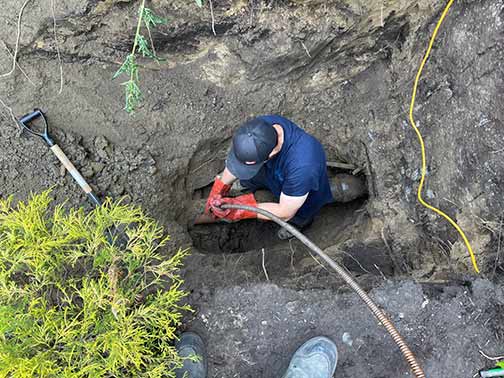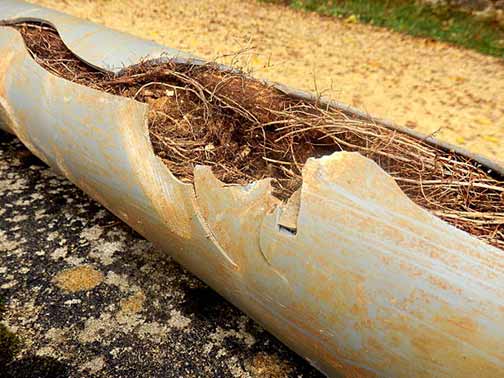
If you are a homeowner, business owner, or property manager, it is important to take steps to safeguard your sewer line from potential damage. Below we will discuss some practical and effective strategies that can help prevent costly sewer line issues, such as backups and blockages. By implementing these proactive measures, you can ensure the longevity and functionality of your sewer system.
Understanding the Importance of Sewer Line Maintenance
Before delving into specific proactive measures, let’s first understand why sewer line maintenance is crucial. Your sewer line plays a vital role in transporting wastewater from your property to the main sewer system. If it becomes damaged or clogged, it can lead to a host of problems, including foul odors, sewage backups, and potential health hazards.
Moreover, sewer line repairs can be extremely expensive and disruptive. By taking preventive action, you can avoid the inconvenience and financial burden associated with sewer line issues. Additionally, maintaining a well functioning sewer system contributes to the overall health and cleanliness of your community.
Inspection and Regular Maintenance
One of the most proactive measures you can take to protect your sewer line is to schedule regular inspections and maintenance. By identifying potential issues early on, you can address them before they escalate into major problems. Consider contacting a professional plumber in Chicago that specializes in sewer line camera inspection and maintenance.
During an inspection, an experienced plumber will use advanced techniques, such as sewer video camera inspections, to evaluate the condition of your sewer line. They will be able to identify any cracks, leaks, tree root intrusions, or blockages that may be compromising the integrity of your sewer system. Based on the findings, the plumber can recommend appropriate maintenance and repairs.
Be Mindful of What You Flush
Being mindful of what you flush down your drains can significantly reduce the risk of sewer line blockages and backups. It is essential to understand that toilets and drains are not designed to handle certain substances and objects. Here are some items that should never be flushed:
- Diapers
- Cotton balls and swabs
- Grease, oil, and fat
- Sanitary products
- Cigarette butts
- Medication
These items can accumulate in your sewer line, leading to blockages and potential damage. Proper disposal is key to avoiding these issues.

As trees grow, their roots can extend underground and infiltrate your sewer line, causing blockages and structural damage.
Tree Root Management
In Chicago, tree roots pose a significant threat to sewer lines. As trees grow, their roots can extend underground and infiltrate your sewer line, causing blockages and structural damage. To proactively manage tree roots, consider the following measures:
- Plant trees a safe distance away from your sewer line.
- Regularly inspect your sewer line for signs of root intrusion.
- Use root barriers to prevent roots from reaching your sewer line.
- Consider removing trees that are in close proximity to your sewer line.
By implementing these proactive tree root management strategies, you can minimize the risk of sewer line damage.
Proper Grease Disposal
Improper disposal of grease, oil, and fat can wreak havoc on your sewer line. When these substances are poured down the drain, they can solidify and create blockages over time. To prevent grease-related sewer line issues, adhere to the following guidelines:
- Allow grease to cool and solidify before disposing of it in the trash.
- Use a paper towel to wipe excess grease from cookware before washing.
- Collect used cooking oil in a container and dispose of it at a designated recycling facility.
- Avoid using garbage disposals for disposing of large amounts of grease.
By following these simple practices, you can protect your sewer line from grease-related problems.
Invest in Sewer Line Backup Prevention
Sewer line backups can occur due to various reasons, including heavy rainfall, aging infrastructure, and blockages. Investing in sewer line backup prevention systems can provide an extra layer of protection for your property. Consider the following options:
- Backflow valves: Backflow valves are installed to prevent sewage from flowing back into your property during heavy rainfall or sewer system overload.
- Sump pumps: Installed in the basement or crawl space, sump pumps help remove excess water and prevent flooding during sewer line backups.
- Alarm systems: Sewer line alarm systems can alert you when there is a rise in sewage levels, allowing you to take immediate action.
Speak with a professional plumber in Chicago to determine the most suitable backup prevention system for your specific needs.
Protecting your sewer line through proactive measures is essential for every Chicago property owner. By scheduling regular inspections, being mindful of what you flush, managing tree roots, properly disposing of grease, and investing in backup prevention systems, you can significantly reduce the risk of sewer line issues.
Remember that prevention is always better than dealing with expensive repairs and inconvenient backups. Take control of your sewer line’s health, and contribute to a cleaner and healthier Chicago community.